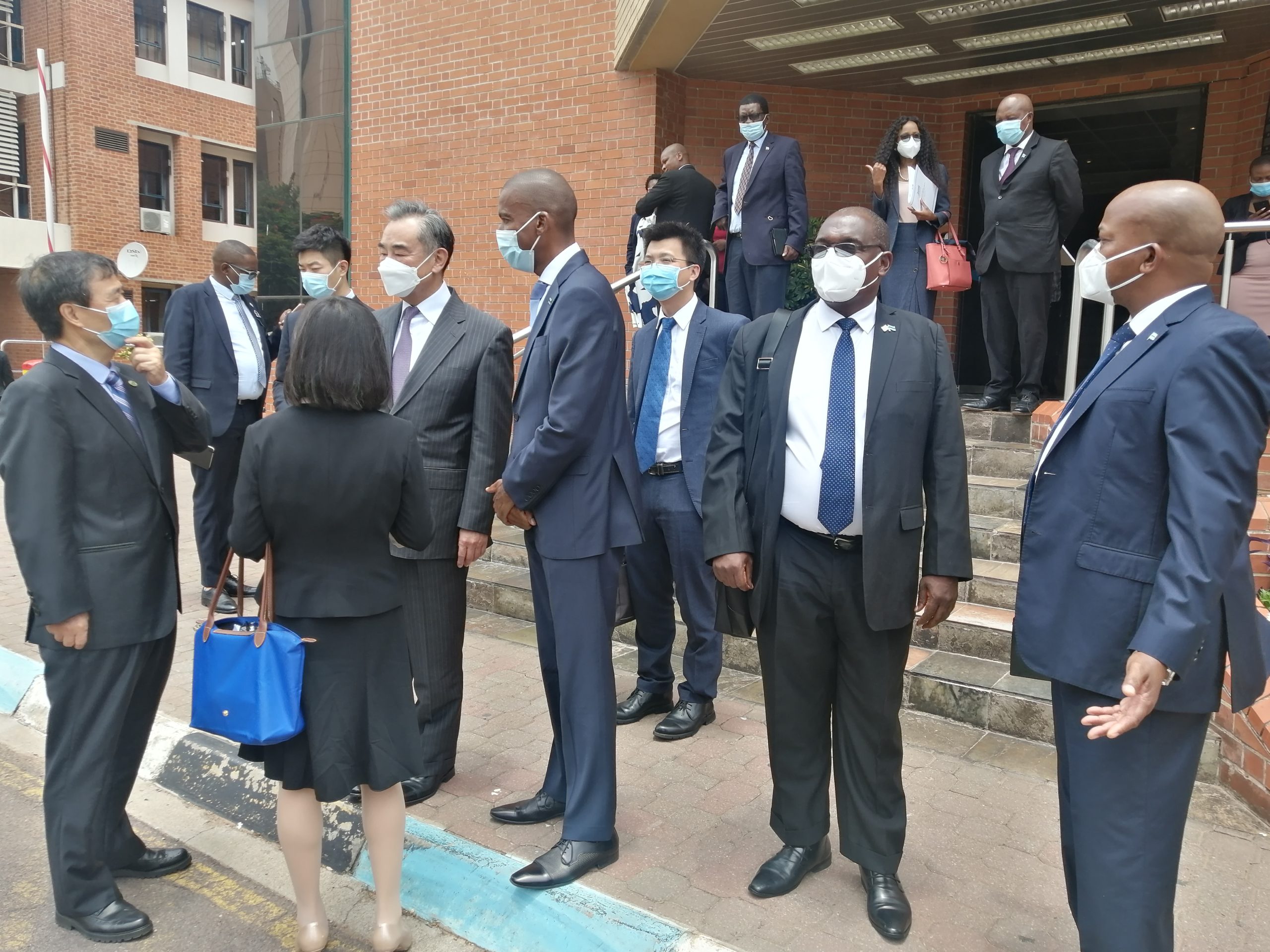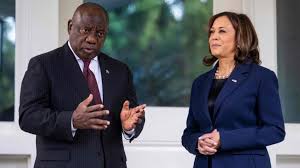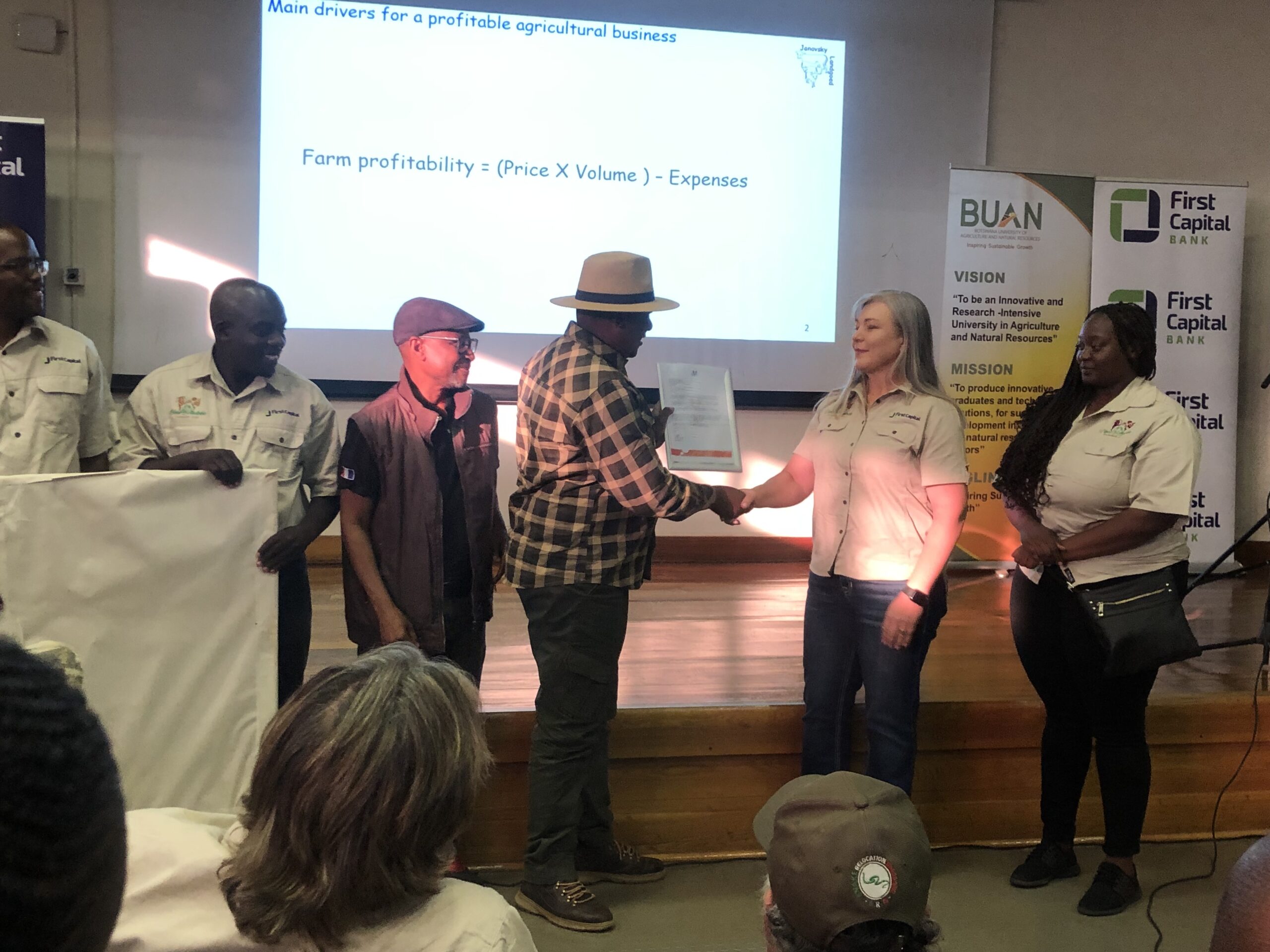
Chinese State Councilor Wang-Yi-and Foreign Minister Dr.-Lemogang-Kwape-after signing the MoU o Belt & Road Initiative in Gaborone in 2021 (Pic TPA)
The Pan Afrikanst Watchman
In his recent engagement with the foreign ministers of Mongolia, the Republic of Korea, and Nepal, the Chinese State Councilor and Foreign Minister Wang Yi expounded on China’s position regarding the new development across the Taiwan Strait.
Wang Yi said that, with the situation across the Taiwan Strait still evolving, it is especially important that we stay vigilant against three dangerous trends:

First, we must be vigilant that the United States, unwilling to accept defeat, might gang up with others to fan the flames and add oil to the fire, beef up military deployment in the region and further escalate the situation in an attempt to create a new and even bigger crisis.
Second, we must be vigilant that the “Taiwan independence” forces, misjudging the situation and overestimating their abilities, might continue to intensify its collusion with internal and external elements and go even further down the path of splitting the country and the nation.
Third, we must be vigilant that politicians in some countries, ignoring right and wrong, might jump on the bandwagon of hyping up the matter. Some might even attempt to copy this political stunt to serve their political self-interests.
This will seriously undermine the political foundation for exchanges with China and severely impact the UN Charter and the post-war international system.
China releases white paper on Taiwan question, reunification in new era
The Taiwan Affairs Office of the State Council and the State Council Information Office of the People’s Republic of China published a white paper titled “The Taiwan Question and China’s Reunification in the New Era” on 10th August.
The white paper was released to reiterate the fact that Taiwan is part of China, to demonstrate the resolve of the Communist Party of China (CPC) and the Chinese people and their commitment to national reunification, and to emphasize the position and policies of the CPC and the Chinese government in the new era. Taiwan has belonged to China since ancient times. This statement has a sound basis in history and jurisprudence. The UN General Assembly Resolution 2758 is a political document encapsulating the one-China principle whose legal authority leaves no room for doubt and has been acknowledged worldwide. The one-China principle represents the universal consensus of the international community; it is consistent with the basic norms of international relations.
http://www.scio.gov.cn/zfbps/32832/Document/1728491/1728491.htm
The Secretariat of the Chinese Follow-up Committee of the FOCAC holds meetings with African envoys
On 10th August, the Secretariat of the Chinese Follow-up Committee of the Forum on China-Africa Cooperation (FOCAC) held a group meeting for consultation with diplomatic envoys of African countries to China. Secretary General of the Chinese Follow-up Committee of the FOCAC and Director-General of the Department of African Affairs of the Foreign Ministry Wu Peng co-chaired the meeting with Elia G. Kaiyamo, Acting Dean of the African Diplomatic Corps and Namibian Ambassador to China. Diplomatic envoys of Senegal, the African co-chair of the FOCAC, and of other African countries and of the African Union to China, were present.
The two sides exchanged in-depth views on the implementation of the outcomes of the Eighth Ministerial Conference of the FOCAC.
China urges support for Africa to enhance its capacities
Zhang Jun, China’s permanent representative to the United Nations and president of the UN Security Council for August, on 8th August, called on the international community to support Africa in enhancing its capacities to secure durable peace in a comprehensive approach.
Zhang said that the Security Council needs to do some deep thinking in helping Africa achieve lasting peace during a Security Council open debate convened by China on the theme “Peace and security in Africa: capacity-building for sustaining peace.”
He urged support for African countries in strengthening governance capacity. He stressed that there should be no political conditions attached to aid, nor should there be interference in the internal affairs of African countries, or to replace the role of local governments.








